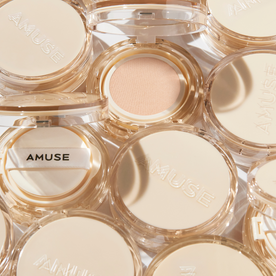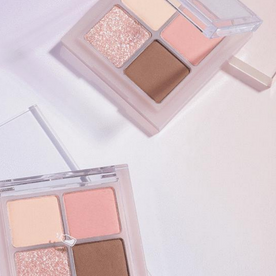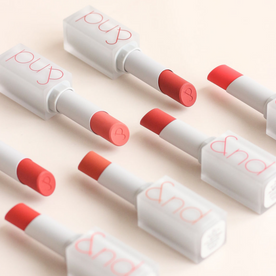A IS FOR ANTIOXIDANTS
Antioxidants seem like they could possibly be the answer to everything that ails us. Besides being present in the superfood-of-the-day, they’re found in a lot of botanicals and natural ingredients.
They’re also often found in anti-aging products. While they won’t necessarily “reverse signs of aging”, they can do a fair amount in the ways of smoothing and fading discolouration. By far, their biggest contribution is in the defence of your skin from outside stressors, like pollution and UV rays.
When it comes to anti-aging (and many other things), it’s better to prevent than to try to reverse. And antioxidants are an excellent way to prevent skin damage.
A Quick Science Lesson: Free Radicals
If you’ve read a lot of skincare labels and/or ads, you’ve probably seen the words “free radicals” often, and know that they aren’t a good thing for our skin. But what are they, and what do they do?
Like everything else, skin is made up of molecules, that in their turn have electrons who like to be in pairs. (hello, high school chemistry). As oxygen in our body splits into single atoms with unpaired electrons (free radicals), they will go around trying to “steal” electrons from other healthy molecules, causing a chain reaction. They cause the breakdown of everything around them: collagen, lipids, even DNA. If the skin isn’t able to repair itself, the cells die. The breakdown of these things can lead to wrinkles, loss of firmness, and inflammation.
Things in our environment can trigger free radical chain reactions. One of the major ones is exposure to UV radiation. Others are pollution, or cigarette smoke.
Why Antioxidants Help
So how do antioxidants help when it comes to free radicals? In order to stop free radicals from stealing electrons from other molecules, antioxidants will “give” them electrons to neutralize them. Antioxidants don’t become free radicals themselves, so they effectively stop the chain reaction. This stops the breakdown of elements that keep skin looking healthy and youthful, therefore preventing signs of aging.
How else do they help? Antioxidants are often anti-inflammatory, and help skin to repair itself. A really effective antioxidant, like vitamin C, can even boost the skin’s production of collagen, making skin smoother and more elastic. Some antioxidants disrupt the production of melanin, which causes hyperpigmentation (or age spots). Something like niacinamide has a general brightening effect, which makes the skin appear healthier.
Keep in mind that eating food high in antioxidants, or using products with antioxidants should never replace sunscreen, or avoiding pollution and harmful chemicals. But they are great complimentary measures, and are easy to use every day.
Popular Antioxidants in Skincare
Not sure where to start? Here are some of the more widely-used antioxidants in skincare. They’re easily found in products by many different brands, and often fairly easy to use.
Resveratrol
This is found in things like grapes, red wine, and cranberries. It protects against environmental stresses, and can even help decrease redness. A great choice is the NEOGEN Bio-Peel Gauze Peeling WINE.
Vitamin C
Often found in ingredient lists as “ascorbic acid”, vitamin C encourages collagen production, protects against free radicals, and fades hyperpigmentation. If you’re just starting out, use a product with a lower concentration, as vitamin C can cause irritation in certain people. Limit your product’s exposure to light, heat, and air to make it last longer, and throw it out if it looks brownish. See our lush vitamin C collection and use additional filters to find the best product for your skin goals.
Vitamin E
You’ll often see vitamin E in the form of “tocopherol”. It defends the skin against UV damage, and works very effectively with vitamin C. Use both to boost results. Find your vitamin E products here.
Retinol
Retinol, or vitamin A, is a very potent antioxidant that’s main benefit is improving the texture of skin. It causes skin to produce new skin cells, diminishing wrinkles and lines. Like vitamin C, if you haven’t used retinol before, you’ll want to start with a lower concentration to test your skin’s tolerance. Retinol will make your skin photosensitive (light sensitive), so use it as part of your before bed routine. Start your retinol journey with our currations here.
Flavonoids
Flavonoids help to absorb UV light and help prevent the breakdown of collagen in skin. In skincare products, you’ll see them in fruit extracts, and green tea. Spoil your skin with this mesmerizing Dr. Ceuracle Kombucha Tea Essence.
Niacinamide
Vitamin B3, or niacinamide is found in many skincare products, because it is a great brightening ingredient. It can also improve the texture of skin and boost its defences, making it a staple in many skincare routines. See what the rave is all about - shop all things niacinamide here.
It’s good to use a range of antioxidants, from those found in fruits and vegetables, to botanical extracts. Even synthetic antioxidants have benefits.
Besides defending your skin from free radicals, a lot of ingredients that are high in antioxidants have additional perks that make them worth using. Some will fade hyperpigmentation, or calm irritated skin. Most will help with anti-aging aspects, from boosting collagen and elastin production, to helping with skin turnover. They’re easy to use and in so many products, it shouldn’t be hard to find something you love! Click here to discover our antioxidant collection and find the best matches for your skin goals.
















































